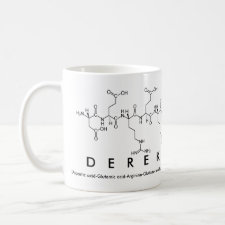
Authors: Stevenson D
Article Title: Selective extraction via immunoaffinity sorbents and molecular imprinted polymers.
Publication date: 1998
Journal: Journal de Pharmacie de Belgique
Volume: 53
Issue: (3)
Page numbers: 122.
Abstract: The analysis of trace organics, such as drugs, metabolites and biomarkers of disease in biological fluids remains a challenging task. Modern methods may require lower detection limits, higher sample throughput, analytes that are difficult to extract, analysis outside the laboratory or measurement of unstable analytes. For many analytes sample preparation remains the rate limiting step and the largest contributor to analytical error. This paper will demonstrate the feasibility of developing highly selective sorbents for solid phase extraction. We have successfully immobilised antibodies to the pesticides chlortoluron and isoproturon and demonstrated their ability to selectively extract these phenylureas from environmental water samples (1,2). This work has been extended to include the successful immobilisation of antibodies to the drugs morphine and clenbuterol (3-5). Selective extraction from plasma and urine can be accomplished using aqueous washing and elution and elution solvents. A generalised protocol involves loading the sample, washing the immunosorbent with phosphate buffered saline (pH 7) and then eluting the analyte in 1 ml of phosphate buffered saline (pH 2-4) containing 40-50 % methanol or ethanol. Samples were subsequently analysed by HPLC with electrochemical detection for morphine and HPLC-UV for clenbuterol. Recently the use of molecular imprinted polymers as antibody mimics has been described. Preliminary work to investigate the feasibility of using these as selective solid phases for the drugs tamoxifen(6) and atenolol will be described



Join the Society for Molecular Imprinting

New items RSS feed
Sign-up for e-mail updates:
Choose between receiving an occasional newsletter or more frequent e-mail alerts.
Click here to go to the sign-up page.
Is your name elemental or peptidic? Enter your name and find out by clicking either of the buttons below!
Other products you may like:
 MIPdatabase
MIPdatabase









